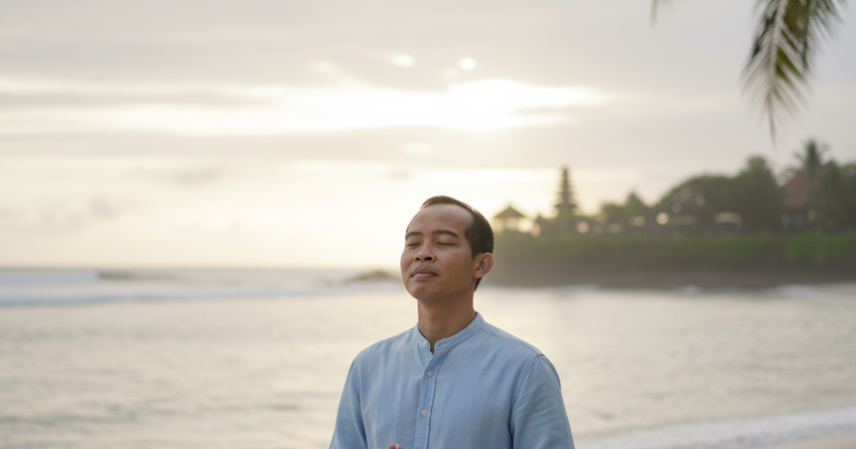The Science of Rest: In modern life, rest is often seen as laziness. We glorify busyness, chase deadlines, and measure worth by productivity. But science tells a different story — one that honors stillness. Doing nothing is not wasteful; it’s biological necessity. The human body and brain are designed to oscillate between effort and rest. When we deny that rhythm, we break our natural balance.
Across history and culture, periods of rest have been sacred. From afternoon siestas in Spain to mindfulness pauses in Japan, every tradition has recognized that recovery is part of growth. Yet today, the art of resting has become an act of rebellion — and perhaps the most powerful thing you can do for your health.
What Happens to the Brain When You Rest?
When you’re not focusing on a task, your brain doesn’t shut down. Instead, it activates a powerful system called the Default Mode Network (DMN) — a network linked to memory, creativity, and emotional processing.
According to neuroscience research from Scientific American, this network allows your mind to connect past experiences with future possibilities. In simple terms: your best ideas often appear when you’re not trying — in the shower, during a walk, or while staring at the ceiling. That’s the brain’s way of integrating and refreshing. Resting literally rewires the mind for clarity.
The Physiology of Rest: What the Body Knows
Rest triggers the parasympathetic nervous system — your body’s “rest and digest” mode. Heart rate slows, blood pressure drops, and digestion improves. Cells repair. Hormones rebalance. In contrast, constant stress keeps your body in fight-or-flight mode, flooding it with cortisol that can lead to burnout, insomnia, and weakened immunity.
Researchers at Harvard Medical School found that intentional relaxation practices — from deep breathing to short naps — can lower inflammation markers and improve long-term heart health. In short: stillness isn’t the opposite of action; it’s the foundation of sustainable energy.
Doing Nothing Is Not Lazy — It’s Intelligent
“Doing nothing” doesn’t mean scrolling endlessly or binge-watching shows. True rest means allowing your senses and thoughts to settle. It’s intentional emptiness — creating space for your body and mind to recover.
As productivity expert Alex Soojung-Kim Pang explains in his book Rest, the most creative people alternate between intense focus and deep rest. They know that recovery time is part of the work.
When you stop rushing, you give your nervous system permission to reset. You begin to notice your breath again, the sound of birds outside, the feel of sunlight through your window — signals your body uses to remind you: you’re alive, not a machine.
Global Wisdom on Rest
Different cultures have always practiced the science of stillness in their own ways:
- In Italy, the riposo or afternoon pause lets people slow down and reconnect.
- In Japan, inemuri — sleeping in public — is accepted as a sign of balance.
- In India, yoga nidra (“yogic sleep”) guides the body into deep relaxation while the mind remains aware.
- And in Nordic countries, friluftsliv — spending time outdoors — is essential to mental health.
Each of these practices shares a truth: rest isn’t luxury. It’s a biological rhythm written into human DNA. Ignoring it disconnects us from life itself.
How to Practice Intentional Rest Daily
- Schedule Rest Like Work. Add quiet time to your calendar — even 15 minutes counts.
- Unplug Completely. Turn off notifications and step away from digital noise.
- Rest Between Tasks. Between projects or meetings, pause to breathe deeply for a minute.
- Go Outside. A short walk in nature resets your nervous system faster than coffee.
- Protect Your Evenings. Dim the lights, stretch, and allow your body to shift naturally toward sleep.
When practiced intentionally, rest becomes active restoration — not idleness. It improves focus, boosts creativity, and deepens joy in your daily life.
To explore how global traditions blend rest and wellness, read also:
➡️ Global Self-Care Rituals You Can Try at Home — on FitGlobalLife.com
The Rest Revolution
We live in a world that rewards constant motion, yet our biology rewards balance. Resting isn’t escaping responsibility — it’s a form of responsibility to yourself.
By reclaiming rest, you reclaim focus, compassion, and presence. The world doesn’t need more exhausted achievers; it needs awake, aware human beings.
So take that nap. Sit in silence. Watch clouds drift without guilt. Because the science is clear: when you rest, you heal — and when you heal, everything else works better.
To learn more about the medical benefits of rest, visit:
The Importance of Rest



